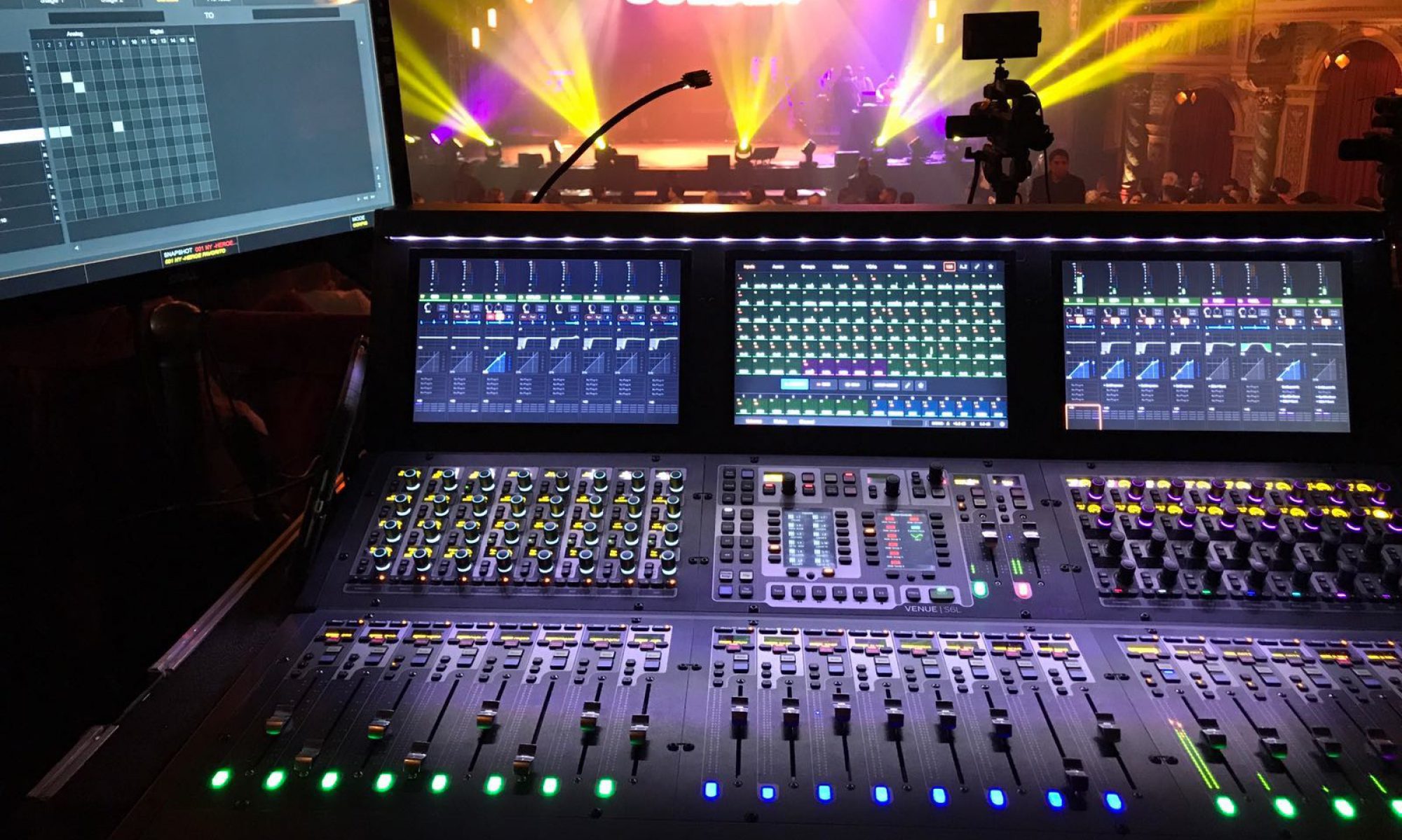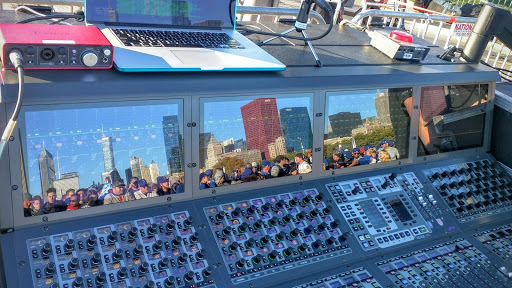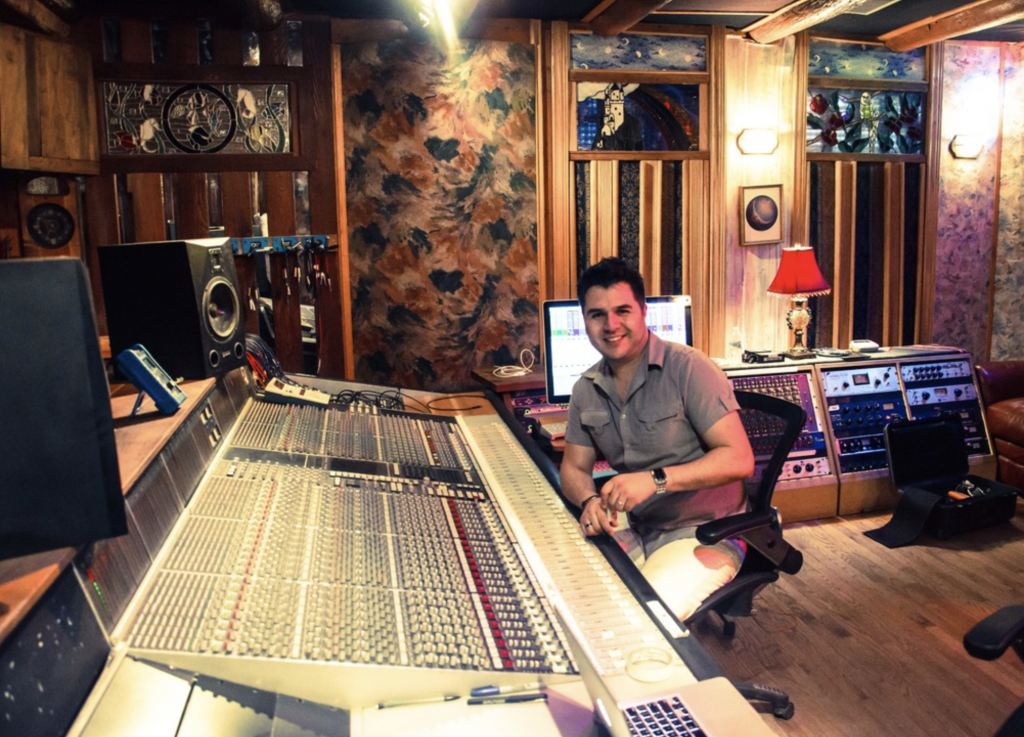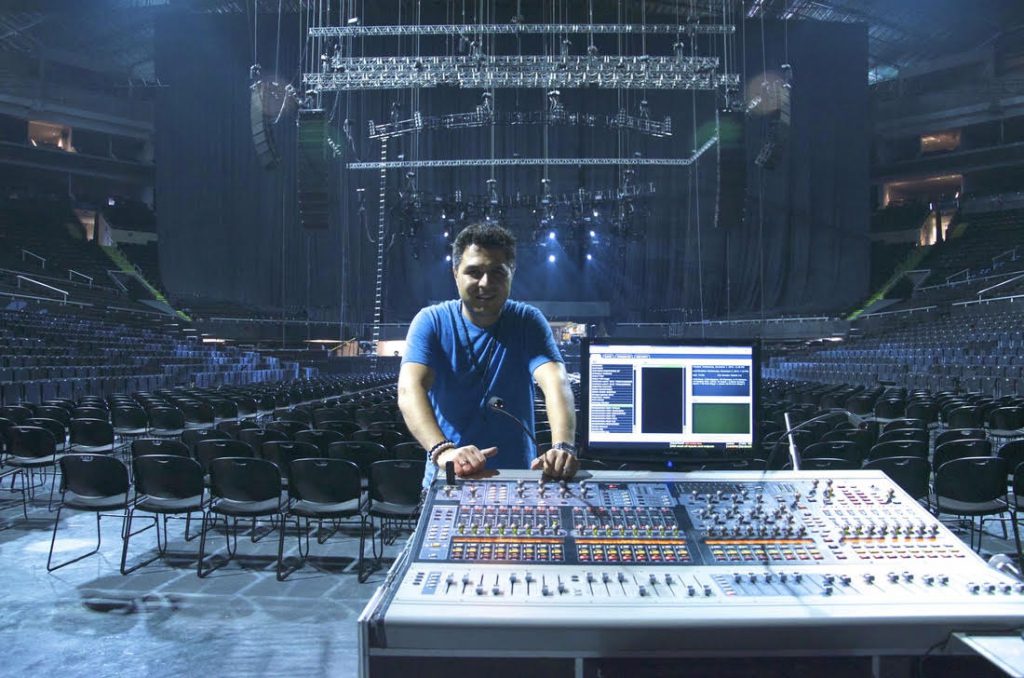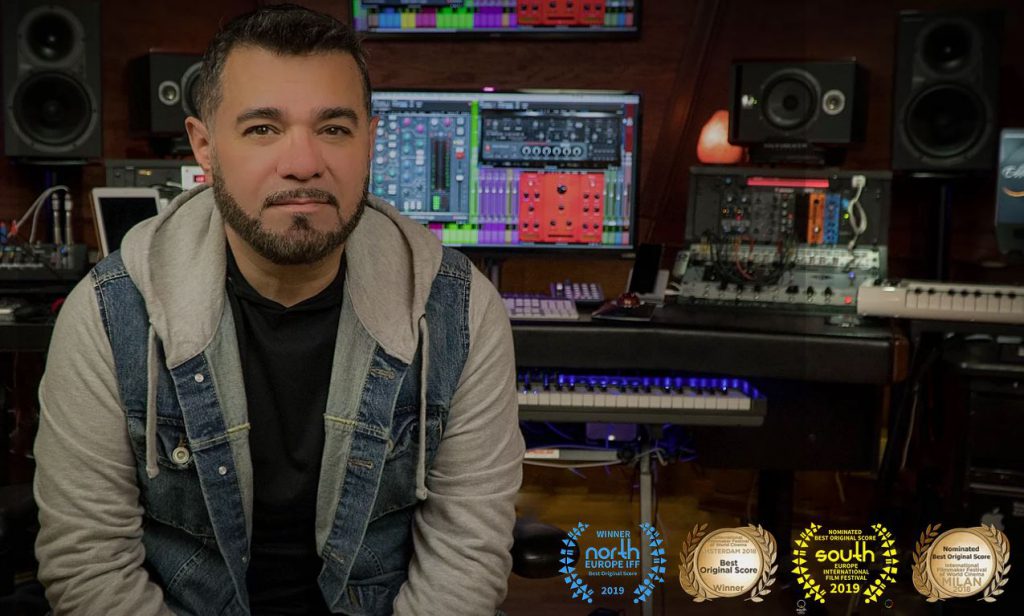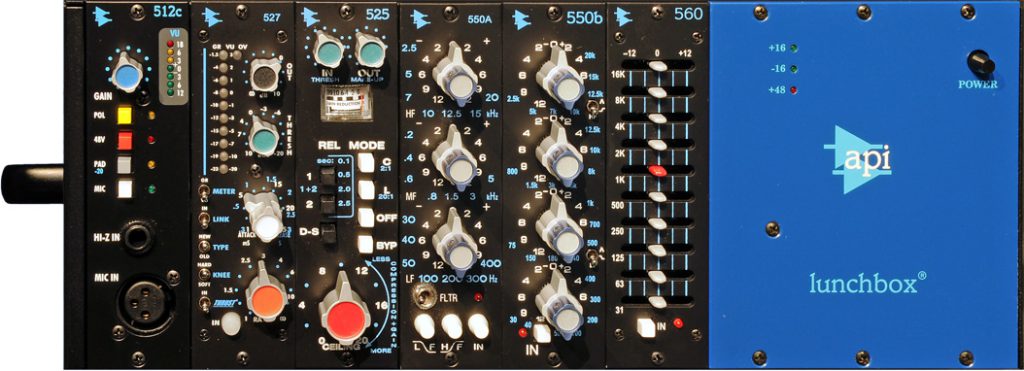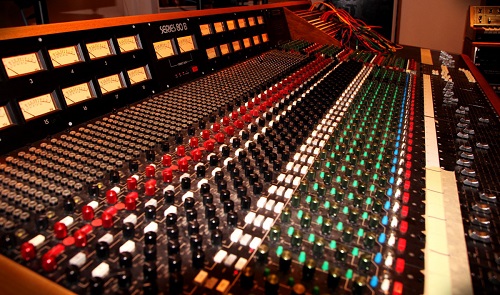1. Who are you? Where are you from? Where or who do you usually mix for?
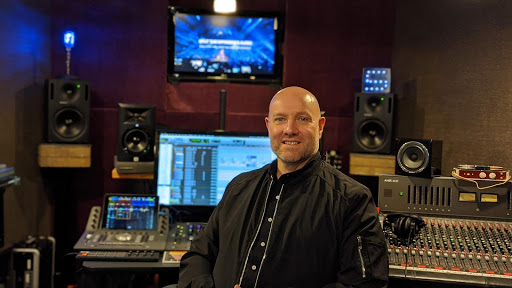
My name is Ron Cook. I am from the Chicagoland area. I grew up in Hinsdale, IL and now live in Algonquin, IL. 4 ½ years ago I started Split The Difference Audio. I am a full time freelance audio engineer. Before that I was on staff at Willow Creek Community Church for 15 years as a staff audio engineer and for 6 ½ years prior to Willow, I worked at T.C. Furlong, Inc.
(Pre-Covid) Being a freelancer I work for many of the Chicagoland production companies as well as national companies. I also spend most of my Sunday’s working at City First Church in Rockford, IL mixing FOH for their services.
(Post-Covid) Over the years I have been building a studio at my home and so that is now my main place of work. I’m just finised mixing a live record for Skerryvore, a band from Scotland, that will be released July 10th.
2. What type of music do you listen to the most? Is there any music that you just don’t like or can’t get onboard with?
I’ll listen to almost anything but currently I’m really enjoying the new retro wave stuff from bands like The Midnight. It’s amazing to relive all the 80’s synth sounds I grew up on. I also really like jazz fusion stuff like Snarky Puppy and my favorite album from the last couple of years still is Above & Beyond’s Acoustic 2 Live from the Hollywood Bowl. All that to say at one time or another in my life I’ve gone through phases of listening to pretty much anything from hip hop to metal to pop.
3. How did you get into the audio industry in general? What/who inspired you? Play any instruments?
I grew up with musical parents and was taking lessons by the second grade. I never had enough interest in it to even consider a career until the 7th grade (1985). My dad was a librarian and just before school was out for summer he took me to New York with him for a convention he had to go to. While he was in meetings I wandered into the hotel gift shop and saw a Keyboard magazine and bought it. I had never seen it before and that opened a whole new world to me. By the fall of 1986 I had bought a Roland Juno-106. I would play in a little group at church and we would also host concerts with national artists. I had a friend from church, Dave Ross, who was a design engineer at Shure Brothers. He would bring a PA for these events, and that was my first intro to working live sound.
During spring break of my sophomore year of high school Dave brought his Tascam 8 Track recorder down to help the band I was in record a demo. By that time I was hooked in doing something with music as a career. As I was finishing high school I played keys, as well as a bunch of brass instruments. I was seriously considering being a music major in college but decided I wanted music to be the hobby and audio to be the career. I went to Columbia College in Chicago and got a bachelor’s degree in Liberal Arts with a concentration in Acoustical Contracting.
4. Do you specialize in live sound (FOH, monitors, etc) or studio sound (broadcast, recording, etc)? What brought you to that area of our profession?
I do both live and studio. I’ve always primarily been a live engineer and that has been the bulk of my career but alongside that I’ve had some form of a studio, from 2 ADATs and a Soundtracs Topaz console in the 90’s to now with my current setup. Obviously with the current situation studio is all that’s happening right now so I’m fortunate to have that.
6. Would you consider yourself an audiophile? Have any cool gear at home? How do you listen to music (i.e. CDs, records, streaming services, etc)?
I would not consider myself an audiophile. I’ve never been into that. For a long time I always just had basic stereo systems. Now with my studio if I really want to listen to something I’ll go down there. Also for our main family entertainment center the speakers are my old original Mackie studio monitors.
7. Favorite console of all time and why?
I guess I’ll still say the Yamaha PM1D because I had so much history with that thing and it’s layout was amazing. I’m left-handed so to have the main fader channel right under my left hand all the time was amazing. That said currently I love the Yamaha Rivage series as well as the other current desks from Digico, SSL, and Avid.
8. Most memorable show for you (one you either attended or mixed)?
For attended shows I’d say there’s 2 and both were at The Park West, in Chicago. One was King’s X on the Dogman tour, and the other was Bruce Hornsby in the early 2000’s.
For shows I’ve mixed the Cubs rally is one of them. From a mixing standpoint it was pretty simple but just the whole atmosphere, being a Chicago Sports fan, was amazing. It was also really last minute. I got called Wed, afternoon, before game 7. Watching that game was insane. Not only from a fan standpoint, but the chance to do one of the biggest gigs I’ve done if they win? Unbelievable.
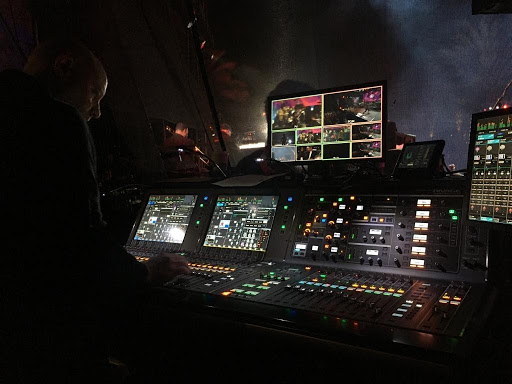
But I’ll say the most memorable mixing show I’ve done was this past January at NAMM. I was brought in by Yamaha to mix a “broadcast” feed for the Grand Plaza Stage. Yamaha puts on a huge show every year featuring a-list artists and a band that features the best of the best. It was all very last minute and I literally had to set up and start sound checking after rehearsal had already started. It was crazy, but the time of my life all at once since I was mixing my musical hero’s like Nathan East, Greg Phillinganes, etc. Not to mention people like Earth, Wind, and Fire, Kenny Loggins, Tower of Power, and Mr. Talkbox. I’ve included a few of the videos from NAMM if you want to take a listen.
9. Favorite or most used audio tool? (no rules here, anything goes, plugins, hardware, etc)
-Avid Pro Tools
-My Amek BCIII Console
-I LOVE Plugin Alliance stuff. Their ch strip plugin emulations of SSL, Neve, and Focusrite blow everything away. I’m also a big Waves user, mainly for live but in the studio as well. They keep putting great stuff out.
10. What is something that you do differently than others? Any ideas you think more people should know about? (feel free to describe a few)
I’ll list 2 things. I don’t know how different they are but over time I’ve noticed these.
-Hi Pass filter freq: I will use hi pass on almost everything but especially on vocals I like to get away with having it as low as possible. I’ve just seen when i’ve come in after other mixers sometimes that the hi pass is way higher than I like. I always want to have as full of a voice as possible, within reason.
-Band verb: I will always have a reverb that the entire band goes into. It’s a way to add space to the entire band. Usually kick and bass will be lower in this mix but they are still there. This isn’t so different from others but since being freelance and working in smaller venues, I don’t know how many times I’ve heard it stated that, with a small room you don’t need verb. I think you need it even more and when done just right really adds dimension to your mix. I heard Dave Pensado say on a video that he tries to feel the reverb rather than hear it and in this case it’s exactly what you’re going for.
11. If possible, where can we listen to your work (online web stream, published music, etc)? Do you have a site we can visit if we’d like to contact you?
I’ve been doing some Yamaha webinars and those will be posted so check out my socials for that. I also have a DPA Microphones webinar coming up on July 9 (here is a link to that webinar: https://bit.ly/380OZY3).
My site and socials are below. Again the Skerryvore record drops July 10. Look for a revamped website soon as well as some training content.
Website: http://splitthedifferenceaudio.com
Instagram: @splitthedifferenceaudio
LinkedIn: https://www.linkedin.com/in/ron-cook-b2a2313/
YouTube Playlist: https://www.youtube.com/playlist?list=PLPVZkrg4dWwFG7Jb25fj4VyfEoyZkiXtJ
